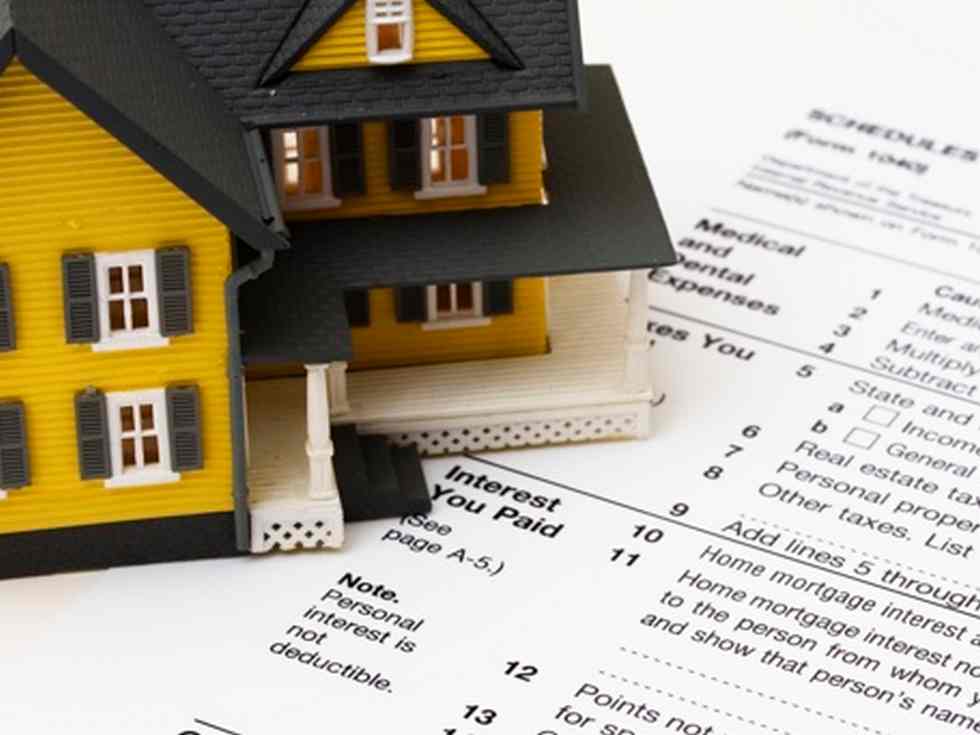When you personal property, it’s possible you’ll be eligible for a protracted listing of tax breaks, whether or not you utilize it as your main dwelling, for rental earnings, or promote it for revenue. Let’s run via acquainted advantages, such because the mortgage curiosity deduction, and likewise the varied (gorgeous!) tax breaks actual property traders, landlords, and owners get pleasure from.
1. Mortgage Curiosity
That is probably the most acquainted of all deductions and one of many only a few occasions that you should utilize the curiosity that you simply’re paying to scale back your tax invoice. In addition to deducting mortgage curiosity that you simply’re paying for the acquisition of your main residence, you can even deduct mortgage curiosity from a second mortgage or a house fairness line of credit score (HELOC).
You possibly can deduct as much as $500,000 ($1 million if married submitting collectively) in all mortgage curiosity used to purchase, assemble, or make substantial enhancements in your first dwelling (and second, if relevant). You possibly can’t, nonetheless, deduct any mortgage curiosity for purchases on a 3rd dwelling and so forth. It’s also possible to deduct as much as $50,000 ($100,000 if married submitting collectively) from all dwelling fairness debt for causes apart from to purchase, construct, or considerably enhance your first or second dwelling.
2. Mortgage Curiosity Credit score
Recipients of a mortgage credit score certificates (MCC) by a state or native authorities beneath a certified mortgage credit score certificates program might be eligible for a federal earnings tax credit score of as much as 20% of their annual mortgage curiosity. Determine this credit score on Kind 8396. The very best half is that the remaining 80% of your mortgage curiosity continues to be eligible as a deduction!
3. Factors
Costs paid by a borrower to safe a mortgage (also referred to as origination charges, most mortgage prices, or low cost factors) can typically be deducted. Nevertheless, in the event you have been to pay factors to refinance an present mortgage, you’d amortize the factors over the lifetime of the mortgage. While you refinance a mortgage, your lender will ship you a Kind 1098 itemizing the factors that you simply paid, however within the occasion that they do not, search for your factors in your HUD-1 settlement sheet.
Web page 6 of IRS Publication, 936 House Mortgage Curiosity Deduction gives a helpful diagram to find out whether or not or not your factors are absolutely deductible for this yr.
4. Actual Property Taxes
You possibly can deduct actual property taxes, together with state, native, or overseas, you paid on actual property you personal that wasn’t used for enterprise. Tally solely taxes paid to authorities establishments and do not embrace itemized tax prices for companies to particular property or folks, similar to a gardener or trash assortment service. For those who have been to promote your property and obtain a refund or rebate of actual property taxes, you would cut back your deduction by the quantity of the refund or rebate.
5. Mortgage Insurance coverage Premiums
You possibly can deduct eligible mortgage insurance coverage premiums offered by authorities authorities, together with the Division of Veterans Affairs, the Federal Housing Administration, and the Rural Housing Service, in addition to personal mortgage insurance coverage (PMI) issuers on loans issued after December 31, 2006. (See additionally: What Is Non-public Mortgage Insurance coverage, Anyway?)
In 2017, you’ll be able to’t deduct your mortgage insurance coverage premiums in case your adjusted gross earnings is greater than $54,500 ($109,000 if married submitting collectively). In case your adjusted gross earnings falls between $50,000 and $54,500 ($100,000 and $109,000 if married submitting collectively), your deduction is restricted and you have to use the Mortgage Insurance coverage Premiums Deduction Worksheet to determine your deduction.
6. Capital Good points Exemption
Ultimately, it’s possible you’ll promote your actual dwelling. Relying on a number of elements, similar to years of possession, substantial enhancements, and neighborhood developments, your property might have appreciated by a number of hundreds of {dollars}. To reduce the tax hit on taxable capital features from the sale of your property, the IRS might exempt as much as $250,000 ($500,00 if married submitting collectively) of that acquire out of your earnings.
Typically, you qualify for a capital features exemption so long as you might have owned and used your property as your fundamental dwelling for a interval aggregating at the very least two years out of the 5 years earlier than its date of sale. Seek the advice of Publication 523, Promoting Your House for extra particulars. The great thing about this tax break is that there isn’t a restriction as to what number of occasions you should utilize it!
7. Funding Curiosity
Actual property traders additionally get a tax break on curiosity paid on cash they borrowed that’s allocable to property held for funding. Such traders want to make use of Kind 4952 to determine their funding curiosity expense deduction.
Regardless of its identify, this funding curiosity deduction would not cowl curiosity gained from passive-income actions or securities that generate tax-exempt earnings.
8. Bills for Enterprise Use of Properties
Freelancers, impartial contractors, and small enterprise homeowners can deduct bills for enterprise use of their properties. With Kind 8829, you’ll be able to declare the realm used recurrently and solely for enterprise to allocate a deductible portion from a variety of bills, together with utilities and depreciation.
In case your deductions for home based business are larger than the present yr’s restrict, you’ll be able to carry over the surplus to 2017! This carry-over will likely be topic to the deduction restrict for that yr, whether or not or not you reside in the identical dwelling throughout that yr.
9. Tax Credit for "Inexperienced" Enhancements
To encourage extra power environment friendly dwelling enhancements, the IRS gives tax credit for qualifying bills. Listed here are two examples:
- Home windows, doorways, and skylights that met the ENERGY STAR program necessities and have been put in between January 1, 2012 and December 31, 2016 on the home-owner’s main residence might grant you as much as $500 in power effectivity tax credit.
- Photo voltaic power methods present a tax credit score of 30% of price with no higher restrict via December 31, 2019. The credit score will lower to 26% in 2020, drop to 22% in 2021, and goes away in 2022.
To find out about different tax credit score alternatives from power environment friendly dwelling enhancements, go to EnergyStar.gov.
10. Deductions From Rental Earnings Actions
Rental actual property gives a number of tax breaks to landlords. For instance, landlords might probably deduct:
- Native transportation bills to gather rental earnings or to handle, preserve, or keep rental property;
- Bills for managing, conserving, or sustaining rental property from the time it was made accessible for lease;
- Depreciation bills for the wear and tear and tear of rental property;
- Native profit taxes for sustaining, repairing, or paying curiosity prices for the advantages;
- Authorized {and professional} charges instantly associated to working bills; and
- Pay as you go insurance coverage premiums.
To be taught the total listing of rental bills and pointers for deduction, seek the advice of Publication 527, Residential Rental Property. For those who use a few of your rental properties for private functions all year long, then you need to rent a tax professional to appropriately deduct bills for rental earnings. Hiring an accountant to report earnings out of your rental actions is itself an eligible deduction, in any case! (See additionally: 4 Instances You Ought to Splurge and Rent a Professional)











